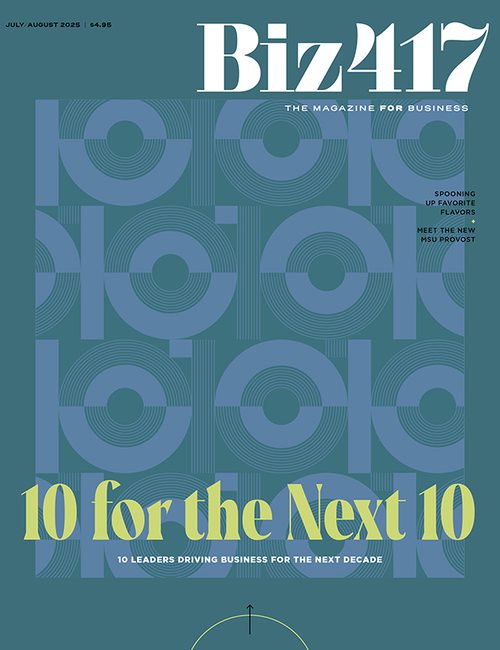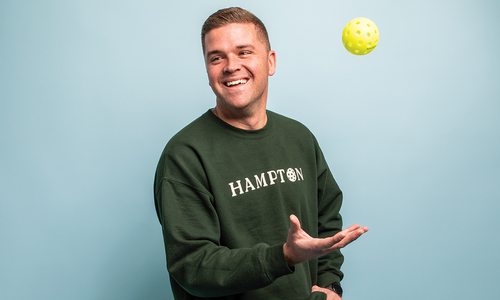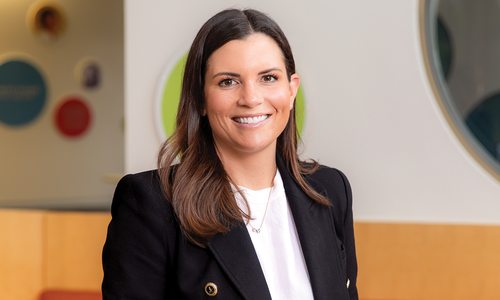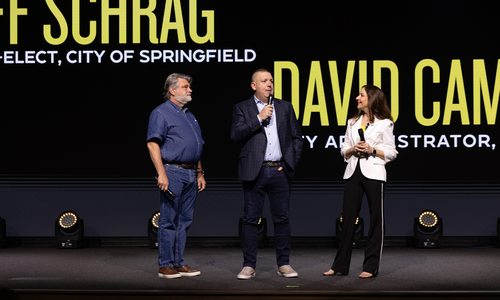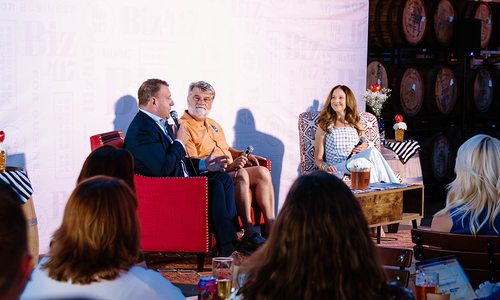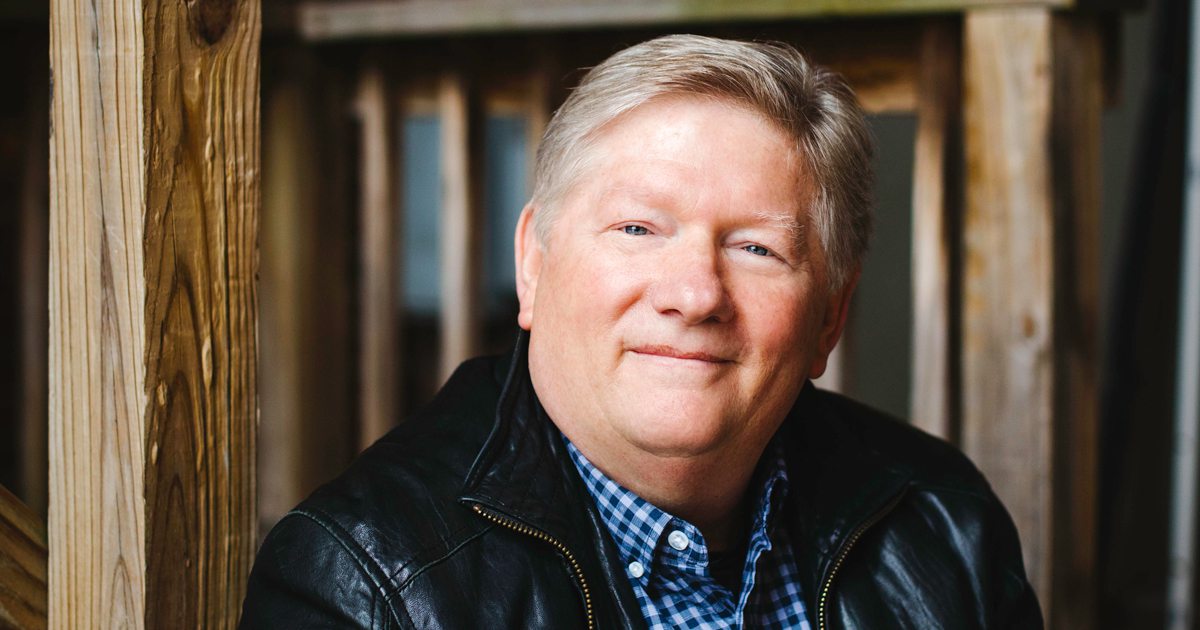
Entrepreneur
How the Power of Kindness Saved and Inspired Convoy of Hope CEO Hal Donaldson
Hal Donaldson has dedicated his career to helping others. His book, Disruptive Compassion: Becoming the Revolutionary You Were Born to Be, roadmaps how others can create change and hope in the world around them.
By Ettie Berneking
Nov 07 2019 at 1:50 p.m.

Before launching Convoy of Hope, Hal Donaldson was a young journalism grad who was inking out a living writing books. On one book writing trip, he was invited to Kolkata, India, where he met Mother Teresa. That meeting, and her simple question, “What are you doing to help the poor and the suffering?” made a lasting impact on Donaldson. Once back home, he loaded a pickup truck with groceries and headed to a low-income neighborhood where he knew families were in need of some kindness. Many years later, Donaldson is now CEO of Convoy of Hope, the Springfield-based non-profit that provides food and assistance to those in need around the world. Today, more than 200,000 children in 14 nations are being fed nutritious meals by Convoy. It has responded to numerous natural disasters worldwide, including Hurricane Dorian, flooding in India and tornadoes in Alabama and Mississippi.
Although Donaldson has dedicated his career to helping others, he has continued to write books. Recently, he gathered the lessons he’s learned through Convoy of Hope and sketched out a roadmap for how others can instigate change for themselves and make a difference in the world in which they live.
We caught up with Donaldson to learn how he first discovered the power of kindness and how Convoy of Hope helped him pen his latest book, Disruptive Compassion: Becoming the Revolutionary You Were Born to Be.
PRESENTED BY
Biz 417: Let’s start at the beginning. You talk in the book about kindness as a driving factor behind Convoy of Hope. How did you learn the power of kindness?
Hal Donaldson: When I was 12, my father was hit by a drunk driver, and my mom was in the car as well. My dad was instantly killed, and my mother was seriously injured and couldn’t work. A family took us in and let us live with them for a year while she recovered. All they owned was a single-wide trailer, and we had 10 people living in that. This family really wrapped their arms around us and treated us as their own. We made it through thanks to the power of kindness, and I grew up with a desire to help others.
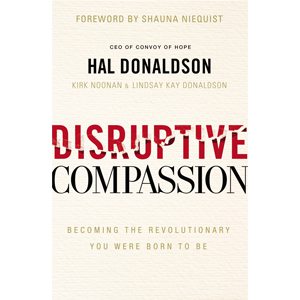 417: Did you have mentors who made sure you walked away with that desire?
417: Did you have mentors who made sure you walked away with that desire?
H.D.: Bill Davis, the father of the family who took us in, told me one day, “Don’t allow the tragedy of your youth become a lifelong excuse because where you start in life doesn't have to dictate where you end.” It was that kind of mentoring that really shaped me and helped me get through it.
417: At Convoy of Hope, you work with a lot of families and individuals who are going through serious hardship. How do you help them see that there is hope out there?
H.D.: I think one of the most important lessons I’ve learned is that when people go through hardship, that’s a pivotal moment in their life. If people come along and show them kindness, it can change their perspective and give them hope that tomorrow can be better than today.
417: How do you keep yourself and your team from feeling overwhelmed by the amount of need?
H.D.: We all have a tendency to focus on the enormity of the need, and that can paralyze us. We say to ourselves, if I can’t do everything, I shouldn’t do anything. But doing something is always better than doing nothing.
417: You guys have found a lot of opportunities to give back. How do you prepare your team for the task at hand?
H.D.: We always focus on giving back in a way that honors and respects people and lets them retain their dignity. But really, the key word is selflessness. Can we live our lives in a way where we truly are watching out for the other person? I don’t know that you ever arrive at that. It’s a lifelong journey, and it’s a quest I’ve been on for 40 years.
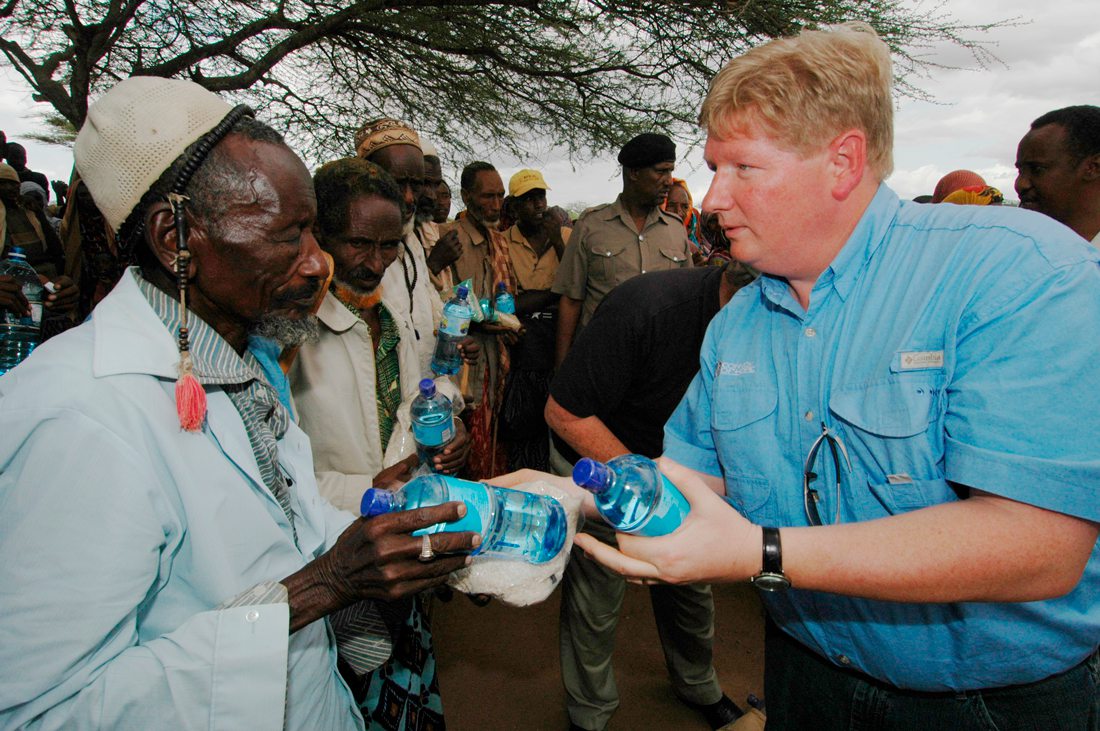
417: It sounds like those 40 years have helped you learn a few things about helping others. Was there a moment in particular that inspired the book?
H.D.: The book came about when I was speaking at the University of Missouri. One student after another came up and essentially asked this, “I want my life to count; I want to make a difference in the world, but I'm not sure what to do.” Driving home from Mizzou, I had the idea of writing a book about how to go from that place of wanting to do something to really doing something.
417: So, what’s step one to start making a difference?
H.D.: First things first, you need to find your mission. Pick something that resonates with you. For me, it all started with helping feed my community. That’s what people did for my family years ago, so being able to do the same thing for someone else really meant a lot to me.
417: What’s step two?
H.D.: You have to jump into reconnaissance mode and look for ways to help. We’re not going to help needs we don’t see, and we’re not going to respond to cries we don’t hear. We have to get out and explore.
417: In your book, you also talk about doing a resource audit.
H.D.: A lot of people look at their pocketbook and say, “I don’t have much, so I can’t do much.” But that isn’t true. Even if you don’t have financial power, you might have great friendships and relationships you can draw on. You might have time or expertise in something. That’s what I mean by conducting an audit of the resources you have.
417: What’s the key takeaway you hope people close the book with?
H.D.: I think a lot of people are telling themselves they can’t make a difference, and I hope after reading the book they realize they can. But it begins with a decision and a desire to help.
FIND A COPY
Disruptive Compassion: Becoming the Revolutionary You Were Born to Be is available on Audible, Amazon, Apple Books and at Barnes & Noble.
About Convoy of Hope: Convoy of Hope was founded in 1994 by the Donaldson family. Today, more than 127 million people have been served throughout the world by Convoy of Hope. As a faith-based, international, humanitarian-relief organization based in Springfield, Missouri, Convoy brings help and hope to those who are impoverished, hungry and hurting. Beyond providing groceries, Convoy helps provide health and dental screenings, haircuts, family portraits, job-placement assistance, educational opportunities, job training and much more.

